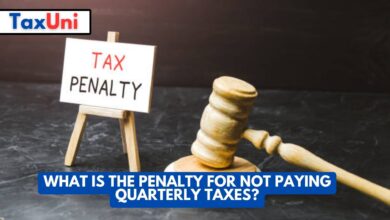Illinois Homestead Exemption Guide
This guide will walk you through the essential aspects of the Illinois Homestead Exemption, including eligibility criteria, the application process, and additional exemptions that may apply to specific groups of homeowners.

Contents
The Illinois Homestead Exemption is a crucial benefit for homeowners in Illinois, providing them with the opportunity to reduce their property tax burden by shielding a portion of their home’s value from taxation. This exemption is particularly valuable for those who meet specific eligibility requirements, including seniors, veterans, and disabled individuals, as it can significantly lower their annual property tax bill. Understanding how the Illinois Homestead Exemption works, who qualifies, and how to apply can help homeowners maximize their savings and ensure they take full advantage of the benefits available to them.
What is the Illinois Homestead Exemption?
The Illinois Homestead Exemption is a property tax relief program that allows homeowners to reduce the taxable value of their primary residence, which in turn lowers their property tax bill. The exemption effectively decreases the amount of property value subject to taxation, offering financial relief to qualifying homeowners.
For most Illinois homeowners, the General Homestead Exemption allows for a reduction of up to $10,000 of the home’s assessed value if the property is located in Cook County, and up to $6,000 for properties located in other counties. This reduction is applied annually, and it can result in substantial savings over time.

Illinois Homestead Exemption Eligibility
To qualify for the Illinois Homestead Exemption, homeowners must meet the following criteria:
- Primary Residence: The property must be the homeowner’s primary residence. Vacation homes or rental properties do not qualify for the exemption.
- Ownership: The homeowner must own the property, either outright or through a mortgage, as of January 1st of the tax year.
- Residency: The homeowner must live in the property as their principal place of residence.
Special exemptions exist for certain groups, including:
- Senior Citizens: Homeowners aged 65 and older may qualify for an additional Senior Citizens Homestead Exemption, which can further reduce the assessed value of their home by $8,000 in Cook County and $5,000 in other counties.
- Disabled Persons: A Disabled Persons’ Homestead Exemption provides a reduction of up to $2,000 on the property’s equalized assessed value (EAV).
- Veterans: Veterans with a service-connected disability may be eligible for the Disabled Veterans’ Homestead Exemption, which can provide significant reductions or even eliminate the tax liability altogether, depending on the percentage of disability.
How to Apply for the Illinois Homestead Exemption?
To apply for the Illinois Homestead Exemption, homeowners typically need to complete an application and submit it to their local county assessor’s office. The application process generally includes:
- Filing an Initial Application: First-time applicants must fill out and submit the Homestead Exemption application form, which can be obtained from the county assessor’s office or downloaded from the county’s website.
- Documentation: Applicants may need to provide documentation to prove their eligibility, such as proof of age, disability status, or military service, depending on the exemption type.
- Annual Renewal: In most cases, the Homestead Exemption automatically renews each year, but homeowners should check with their county assessor to confirm if any additional steps are needed annually.

Additional Exemptions for Illinois Homeowners
In addition to the standard Homestead Exemption, Illinois offers several other property tax relief options:
- Senior Citizens Assessment Freeze Exemption: This exemption freezes the equalized assessed value of the home for qualifying senior citizens, preventing increases in property tax due to rising home values.
- Homestead Improvement Exemption: This exemption allows homeowners to exclude up to $75,000 of the home’s assessed value from property tax increases that result from home improvements.
Due Dates for Illinois Homestead Exemption
Homeowners must be mindful of the application deadlines for the Illinois Homestead Exemption, as they can vary by county. Typically, applications must be filed within the tax year for which the exemption is sought. For example, if applying for the exemption for the 2024 tax year, the application must be submitted by a specific date in 2024, depending on the county.
It’s also essential for homeowners to keep track of any changes in their situation, such as selling the home or changes in eligibility status, as this can affect their qualification for the exemption.





